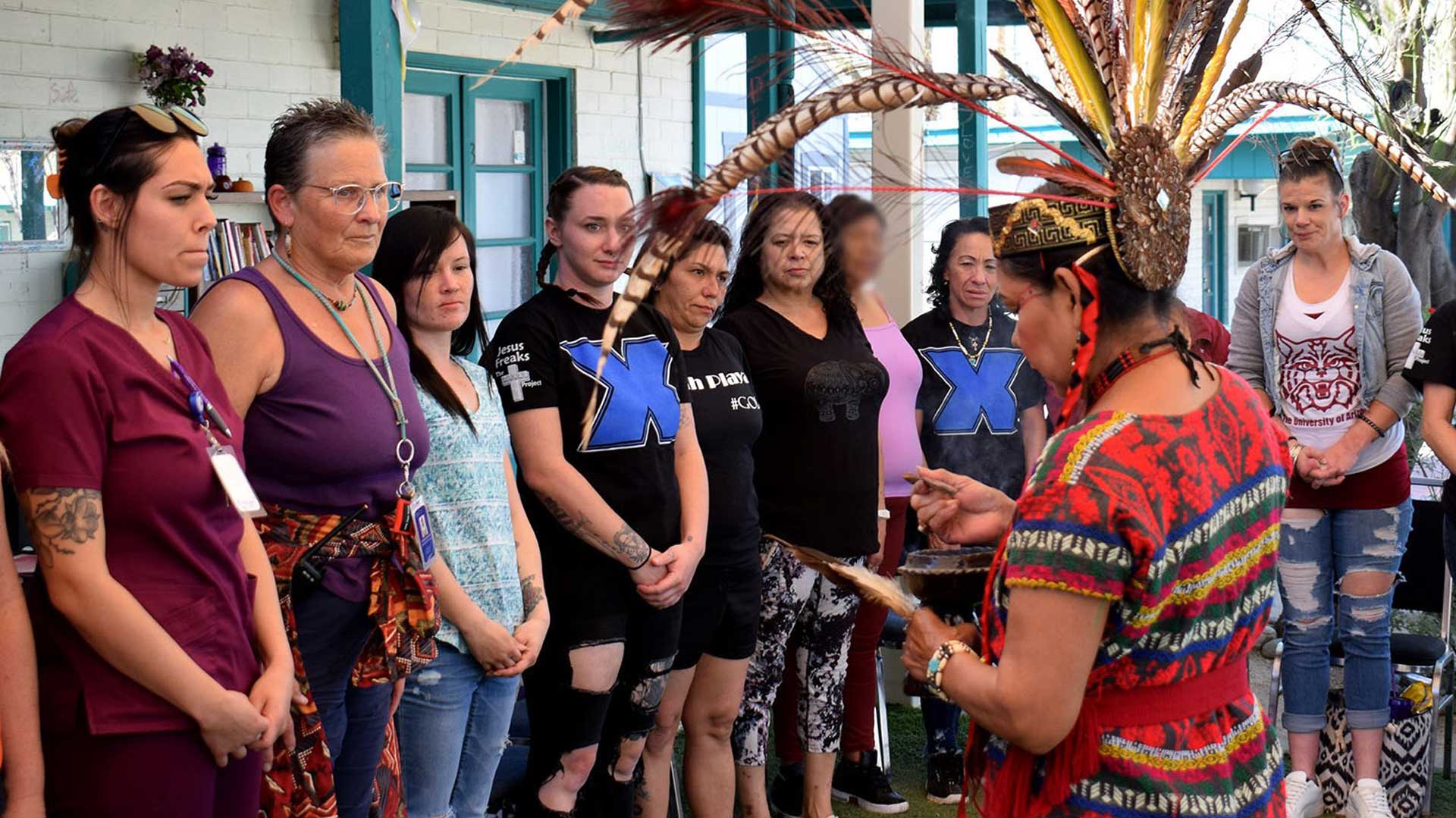 Clients participate in a smudging ceremony at The Haven, a local substance use treatment center in Tucson, Arizona. The facility offers a Native Ways Program, a treatment plan that incorporates Native American culture and practices.
Clients participate in a smudging ceremony at The Haven, a local substance use treatment center in Tucson, Arizona. The facility offers a Native Ways Program, a treatment plan that incorporates Native American culture and practices.
With the help of the Southwest Institute for Research on Women (SIROW), the local substance use treatment center, The Haven, looks to expand its services to Native American women in substance use recovery.
In September, SIROW, received a $1.1 million grant from the Substance Abuse and Mental Health Services (SAMHSA), to help support existing services of the Native Ways Program, a substance use treatment plan that centers indigenous culture and practices.
SIROW is the regional resource and research institute within the University of Arizona’s College of Social and Behavioral Sciences.
Since then, federal funds have helped support the New Dawn-Warrior Women project, an expansion of the Native Ways Program. SAMHSA will support the project over the next three years.
Brenda Granillo who leads performance and outcome behaviors at the center said the new project fills in a substantial gap.
“Increasing access to culturally tailored harm reduction treatment or recovery support services, particularly for indigenous women and hispanic populations has been known to increase their success rate and recovery,” Granillo said.
Out of 39 substance use treatment centers within a 50-mile radius of Pima County, only four are female-specific. The Haven offers two of those programs.
“A huge gap,” Granillo said.
The Haven has also expanded its sexual health education and testing services in partnership with Pima County.
Research shows a need for sexual and relationship health intervention amongst women who have substance abuse disorders and co-occurring disorders.
Granillo said adult women who use opioids are reported to be sexually violated in drug use settings or receive drugs or money in exchange for sex, at higher rates.
“This is an opportunity to fill in that gap, and empower women with this curriculum,” Granillo said.

By submitting your comments, you hereby give AZPM the right to post your comments and potentially use them in any other form of media operated by this institution.